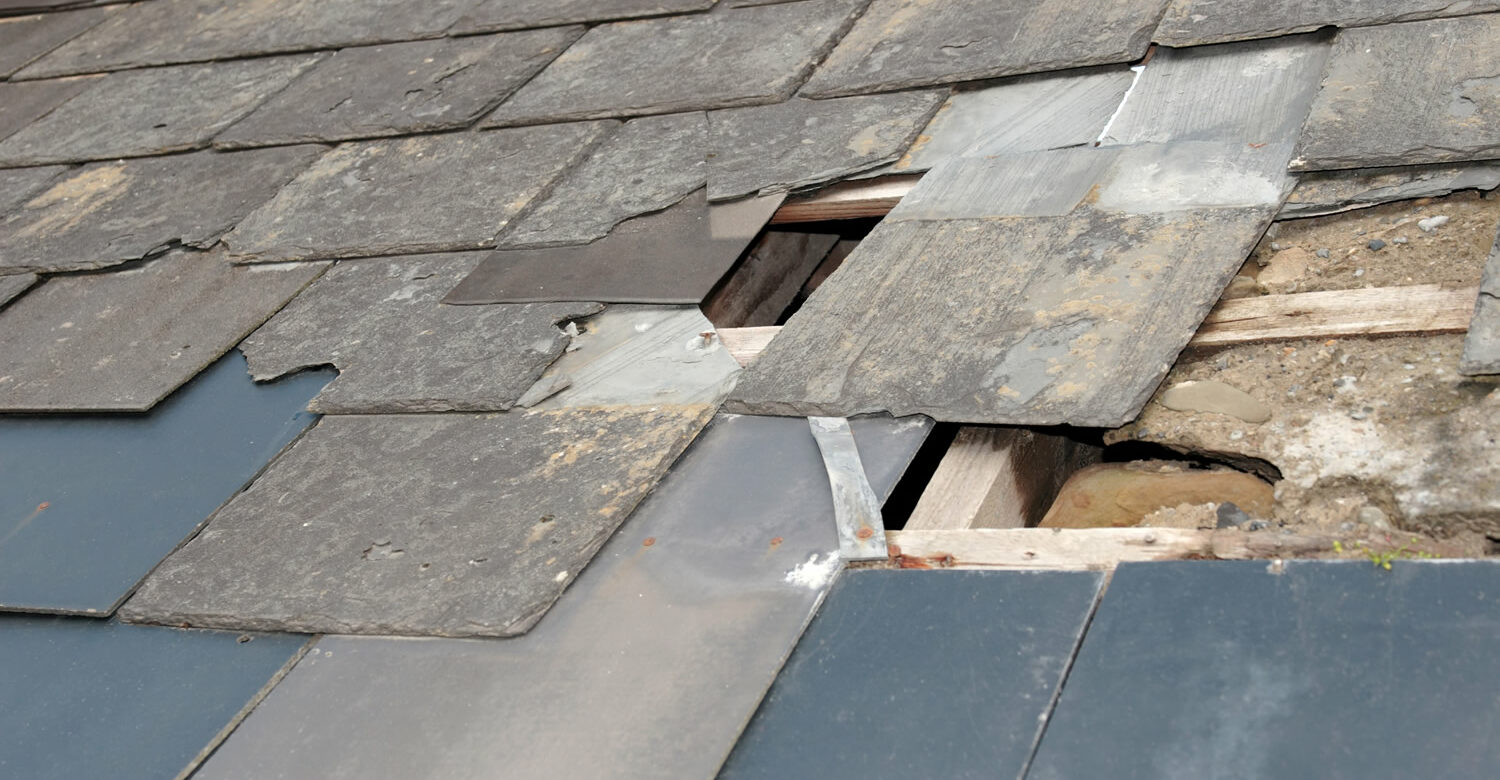Hurricane season starts June 1st, and Hampton Roads residents know that the key to surviving hurricane season is preparation. If you’re a new homeowner in the Tidewater region, don’t assume that Virginia Beach residents are the only ones who need to be concerned about potential storm damage. Homes in Chesapeake, Norfolk, Portsmouth, Hampton, Newport News and even as far west as Suffolk and Isle of Wight are all susceptible to hurricane force winds, storm surge and torrential rain.
Just as you would put together a hurricane preparedness plan and kit, you should prepare your home for the inevitable storms as well. The time to find out you need a new roof is not in the middle of gale-force winds and power outages. Fortunately relatively simple inspections and research can help you determine whether your roof is as hurricane ready as you are.
Research Roof Materials and Age
If you didn’t have your home built or if you haven’t had the roof replaced yourself, you may need to do a bit of detective work to determine its age and the materials that were used. If the previous homeowners didn’t leave any records, ask around the neighborhood and see if anyone knows the last time it was replaced. If the home is less than 20 years old, you can likely assume the roof is original. Regardless of its age, the materials and workmanship behind them is probably the biggest factor when it comes to whether reroofing is needed. Here are some rules of thumb when it comes to the lifespan of residential roofing materials:
- Asphalt Shingles: the most common residential roofing material used on about 80% of homes generally lasts 15-30 years.
- Architectural Shingles: a specific type of thicker, premium asphalt shingle that usually lasts 25 to 30 years.
- Wood or Cedar Shake Shingles: less common, but sometimes used on beach homes, these roofs can last up to 30 years, but only if they are annually maintained and split shingles are repaired.
- Clay Tile Roofing: a fairly uncommon material in Hampton Roads, these tiles can last as long as 50 years or more, which is good since they can be very expensive to replace and repair.
- Metal Roofs: their lifespan depends on the gauge of the metal used. The higher the gauge, the thinner the metal. So a high-end 22-24 gauge metal roof can easily last more than 50 years, while a thinner gauge (26-29) can have a lifespan of 20-25 years.
Inspect Your Roof’s Condition
A visual inspection can also help you determine if an expert roofer needs to be brought in. If you’re concerned about the safety of doing this, call a licensed roofing contractor to inspect for you. Here are the most common red flags to look out for.
- Shingle Deterioration: Do you see any shingles that are curled, split, or that seem to be crumbling away? These are signs of old shingles that need to be replaced. This kind of deterioration can cause structural rot and interior damage and will only get worse with time.
- Flashing Deterioration: Leaks are often caused not by the roof itself, but by the flashing around it. Flashing should be strong and tight around chimneys, vents, skylights, and roof junctions, or water can enter, causing damage to walls, ceiling, insulation and even electrical wiring. A great time to inspect your flashing is when you’re cleaning the gutters. Make sure everything is secure and no pieces are missing.
- Missing Shingles: Coverage is key. Wherever a shingle is missing, the effectiveness of the entire roof is compromised. The problem is also likely to spread – once one shingle is gone, the others around it are more vulnerable to wind. And while those missing shingles may not necessarily mean you need a whole new roof, they should be repaired and replaced as soon as possible.
Call a Professional
If you identify any of these issues, or are able to pinpoint the last time your roof was replaced and are concerned about its age, it’s time to call in a professional. Roofing repairs are not a safe DIY project, and the consequences of doing it incorrectly can be dire to both you and your home’s well being. Research roofers thoroughly and find a licensed and insured certified contractor. If they are a trustworthy, quality company, they will have these licenses and certifications in place and will provide a free estimate of the repair or replacement.
If you live in the Hampton Roads region and need an expert to help you determine if you need a new roof or roof repair, call Andrews Roofing. We have been serving Southeast Virginia for over two decades and have worked on hundreds of residential and commercial roofs. We are experienced in the exact types of roofing damage common in the Tidewater region and can give expert advice on the best materials and approach to providing a long-lasting, beautiful new roof for your home.
